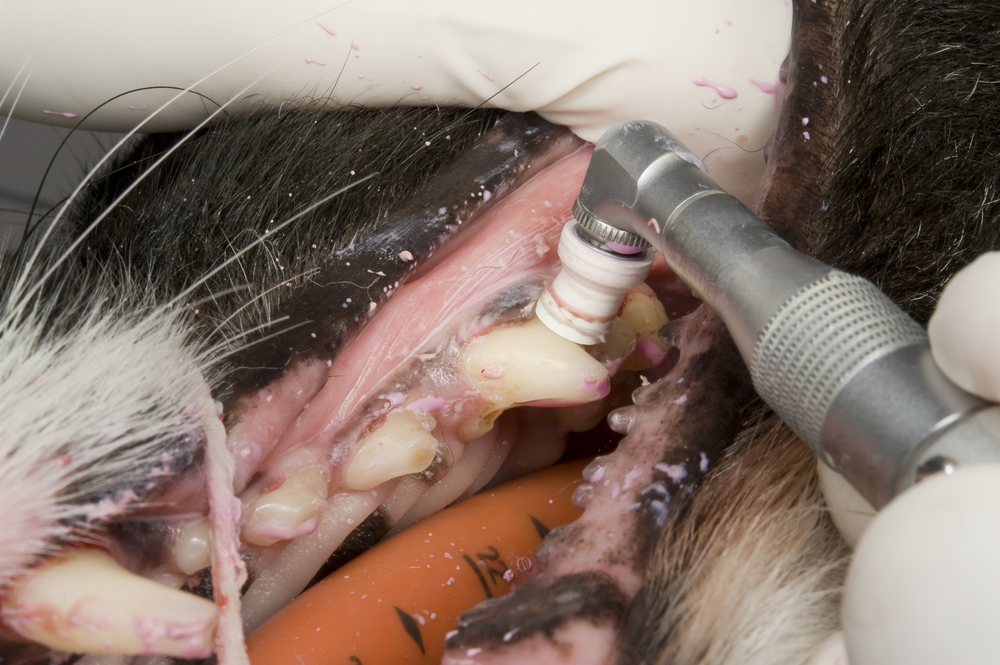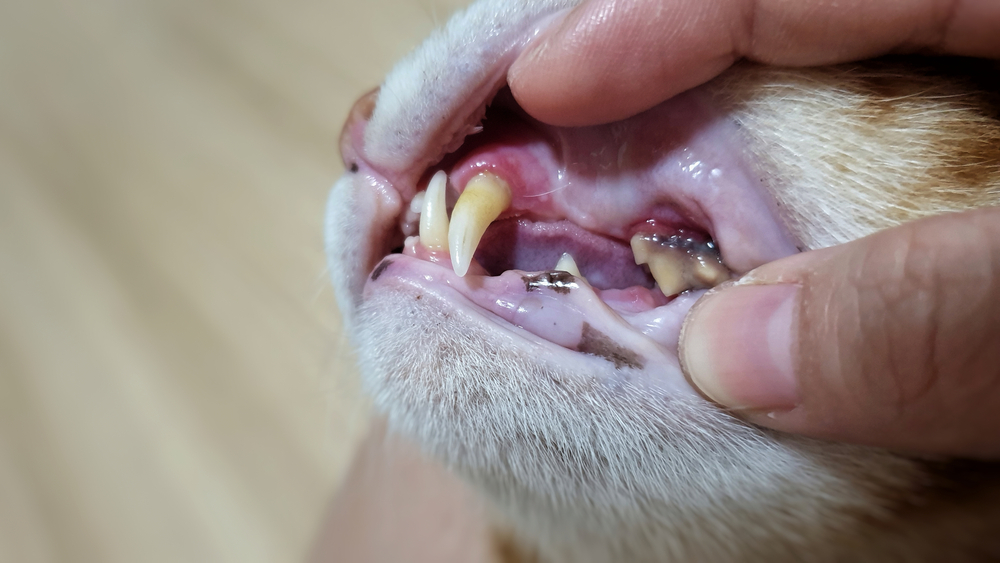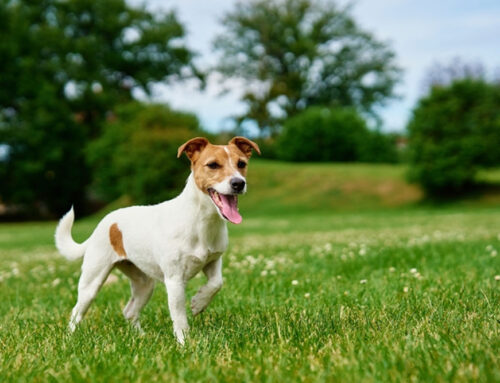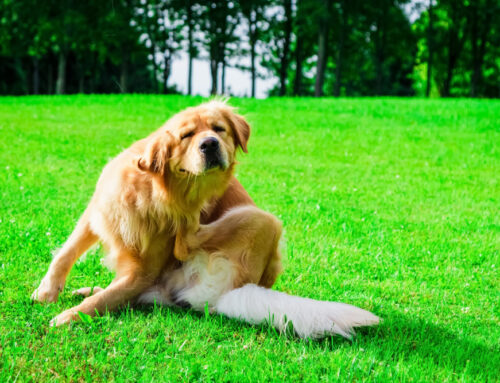Did you know you have fewer teeth than your dog? Adult dogs have 42 teeth, while adult cats have only 30, but each and every tooth requires special attention to remain disease-free. Up to 85% of cats and dogs have dental disease by age 3, so caring for your pet’s oral health from the beginning is essential. To ensure your four-legged friend has fresh breath and a healthy smile throughout their life, follow these six tips for keeping your pet’s teeth tartar-free.
#1: Teach your pet to enjoy daily toothbrushing
At home, nothing is more beneficial for warding off dental disease in your pet than twice-daily toothbrushing, but most pets find the sensation odd and need a gradual introduction. To begin brushing your pet’s teeth, purchase the correct items—pet-friendly, fluoride-free toothpaste, and a toothbrush that will fit your pet’s mouth, whether child-sized or a finger brush. First, allow your pet to lick the flavored toothpaste from your finger, and then attempt to wipe a dollop on their teeth. Always follow with treats as appropriate. Progress to using the toothbrush once your pet realizes they receive a treat when you stick your hands in their mouth. With patience and perseverance—and rewards—most pets will readily accept toothbrushing.
#2: Learn dental disease warning signs in your pet
Pets are excellent at hiding pain and disease signs, so spotting periodontal problems can be tough, unless you know what to look for. Keep a sharp eye out for the following signs when you’re brushing your pet’s teeth:
- Red, inflamed gums
- Brown, yellow, or grey tartar accumulation on the teeth
- Bad breath
- Bleeding gums
- Reluctance to chew hard food
- Dropping food while eating
- Pawing at one side of the face
Your pet may also develop a lump under their eye on their muzzle, which can indicate a tooth-root abscess. Some pets may suddenly become head-shy, avoiding petting or grooming around the head and face.
#3: Avoid chew toys and treats that can harm your pet’s teeth
Pets explore the world with their mouths, and they often chew items that can seriously threaten their oral and gastrointestinal health. Fortunately, you can guide your pet toward chewing appropriate items to ensure their teeth remain healthy and strong. Avoid hard chew toys and treats, including bones, hooves, antlers, rawhides, and tennis balls, especially for heavy or excessive chewers. Hard objects can easily fracture your pet’s teeth, while tennis ball felt can be abrasive to tooth enamel. When in doubt about safe chew toys for your pet, contact our south Austin veterinary hospital.
#4: Choose veterinary-approved dental health care products
Not all dental health care products are created equal. Some have gone above and beyond to receive the Veterinary Oral Health Council’s (VOHC) seal of approval. These seals are given only to products proven to slow plaque and tartar accumulation. To create a well-rounded, at-home dental health care regimen for your pet, choose from the VOHC list of approved prescription diets, chews, treats, water and food additives, and dental wipes.
#5: Never skip your pet’s wellness exam
Although you know your pet best, our veterinary team knows dental disease better, and can quickly spot hidden signs in your furry pal that you cannot detect. To keep your pet’s mouth in tip-top shape, never skip their wellness exam, which includes an oral exam to check for signs of dental disease or other periodontal problems.
#6: Enlist veterinary professionals to help keep your pet’s mouth healthy

Turn to your favorite south Austin veterinarian for extra help keeping your pet’s mouth clean and healthy. Our Oliver Animal Hospital team is highly skilled at removing every trace of plaque and tartar from your furry pal’s teeth, both above and below the gumline. As much as 60% of each tooth’s structure lies hidden by gingival tissue, which makes removing lurking bacteria through toothbrushing alone impossible.
During a dental procedure, our veterinary team will thoroughly evaluate your pet’s mouth to check for injury or disease. Using digital dental X-rays and special tools, we will search for hidden problems and create an appropriate treatment plan. We will also clean your pet’s teeth, polish away imperfections, and apply a protective fluoride treatment, similar to your experience at your dentist. Some pets require frequent dental cleanings to prevent painful dental disease, while others maintain their oral health fairly well and may not need annual cleanings.
Could your furry pal’s mouth use a thorough cleaning? Turn to your southwest Austin veterinarian for help. Contact Oliver Animal Hospital for your pet’s oral exam and dental cleaning.







Leave A Comment